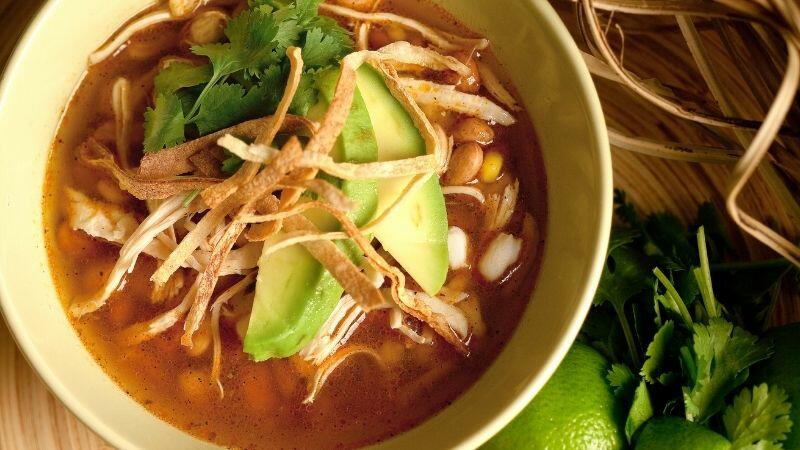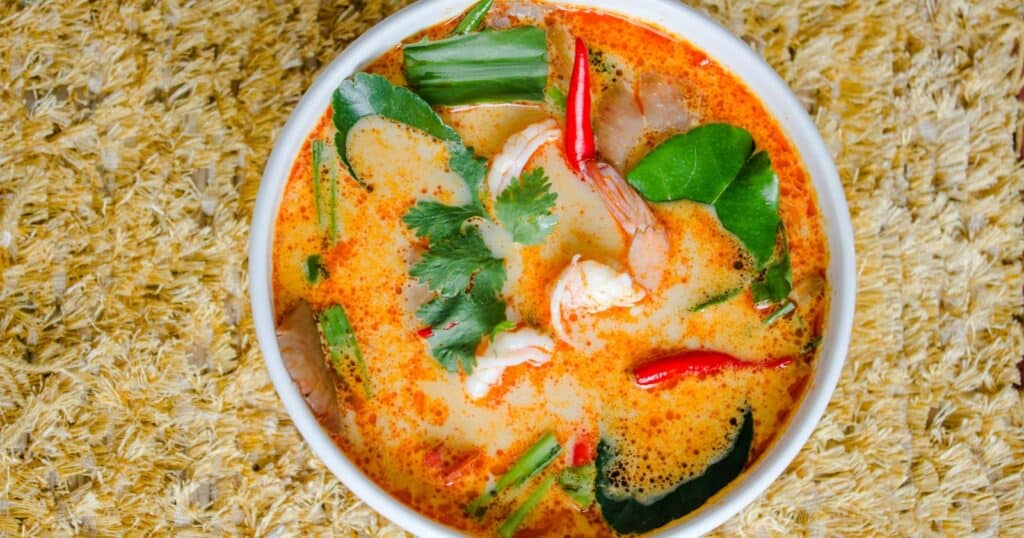When you’re stopped up and feeling miserable from a nasty cold, a steaming bowl of something mouth-searingly spicy may seem like just what the doctor ordered. Spicy foods can help clear your sinuses, soothe your sore throat, and break up congestion – providing welcome relief when you’re sick. But can fiery foods actually cure or prevent colds, or are they simply an old wives’ tale?
The magic ingredient in spicy dishes is capsaicin. This compound triggers your body’s mucus production, helping you breathe and swallow more easily when you’re all plugged up. A liberally-spiced soup or curry can break up phlegm and open your airways – temporarily relieving cold symptoms.
However, experts caution that spicy foods won’t shorten the duration or severity of a cold. And they can sometimes do more harm than good, especially if you already have a sensitive stomach or gastrointestinal issues. For some folks, overdoing the hot spices may exacerbate nausea, bloating, heartburn, and diarrhea.
Moderation and comfort are key. A comforting bowl of mildly spicy soup can soothe cold symptoms without upsetting your stomach. But avoid going overboard on the
While science says spicy food can’t cure or prevent a cold, a little heat at mealtime may provide welcome symptom relief. In this article, you’ll learn more about the effects of spicy foods on cold symptoms. I’ll provide tips on incorporating the right amount of
How Spicy Foods Work
The key compound that makes foods taste spicy is capsaicin. When you eat it, capsaicin binds to receptors in your mouth and throat that detect heat and pain, tricking your brain into perceiving
This reaction also triggers your body to produce more mucus in your nose and throat. That extra mucus can help relieve congestion and coughing by lubricating nasal passages and throat tissues. The increase in mucus production from spicy foods may be why your nose starts running after eating something hot and spicy.
Potential Benefits for Cold Symptoms
Several studies have shown that spicy foods can provide temporary relief for some cold and flu symptoms:
- Clearing nasal congestion and lung congestion due to increased mucus production. This temporary effect can help you breathe and sleep better.
- Soothe a sore, scratchy throat by coating throat tissues. Capsaicin activates receptors that make you less sensitive to throat pain and irritation.
- Break up chest congestion and coughing by thinning mucus secretions in your lungs, allowing you to clear them more easily.
- Boost blood circulation. The capsaicin-triggered increase in body temperature from eating spicy foods enhances blood flow. Better circulation can relieve sinus pressure.
Risks and Precautions
While spicy foods may bring some relief for congestion, coughs, and sore throats, they do come with some cautions:
- Spicy foods can aggravate heartburn, acid reflux, and other gastrointestinal issues that are common with colds and flu. Go mild if you already have stomach discomfort.
- Very spicy foods may cause nausea, abdominal pain, and diarrhea – symptoms you certainly don’t need if you already have the chills, aches and fatigue from a cold or flu.
- Spicy foods only provide temporary relief for symptoms as long as the capsaicin is active. They do not shorten the duration of colds.
- Overuse of spicy foods may cause throat irritation or desensitize your taste buds.
Tips for Using Spicy Foods When Sick
Focus on comfort and moderation when adding
- Opt for mild to medium heat levels – avoid extreme spiciness.
- Add
spice via chili oil or flakes instead of hot sauce for better control. - Balance
spice with soothing ingredients like broth, rice, yogurt, or coconut milk. - Hydrate well and avoid spicy foods if you have a fever, nausea, or gastrointestinal issues.
- Eat spicy foods only when symptoms flare up for fast, temporary relief.
- Try soothing teas with ginger, clove, black pepper, or cayenne – but skip very hot chai.
Spicy Soups and Stews
Warming soups and stews that pack a touch of heat can be very comforting when you’re congested and chilled from a cold. Some great options:
Chicken Tortilla Soup

This Mexican favorite contains mild heat from diced jalapenos and smoky chili powder. The chicken and veggies provide immune-boosting nourishment.
Mulligatawny
This Indian curry-style soup gets a gentle kick from cayenne and black pepper. Chicken or vegetable broth offer hydration.
Sinigang
A Filipino tamarind soup flavored with chili peppers. It provides a tasty dose of vitamin C. Go easy on the chilies if your stomach is sensitive.
Tom Yum

The classic Thai soup contains galangal, lemongrass, and kaffir lime leaves. Add some chopped Thai chili for sinus-clearing
Pozole
A hominy and pork stew from Mexico, seasoned with mild guajillo and ancho chilies.
The Bottom Line
Science says spicy foods like hot sauce and chili will not prevent or cure colds. But they can temporarily alleviate some annoying symptoms like stuffy nose, cough, and sore throat when used judiciously. Pay attention to your body, go mild if your stomach is bothering you, and stick to warm soothing ingredients. A little judiciously applied heat can provide much needed relief when you’re feeling under the weather!





